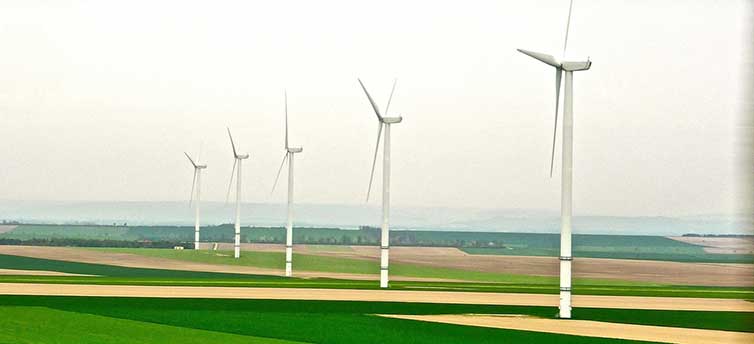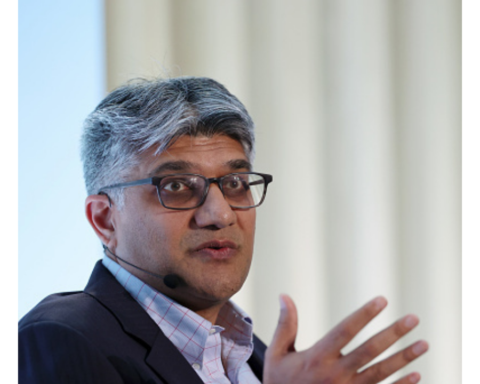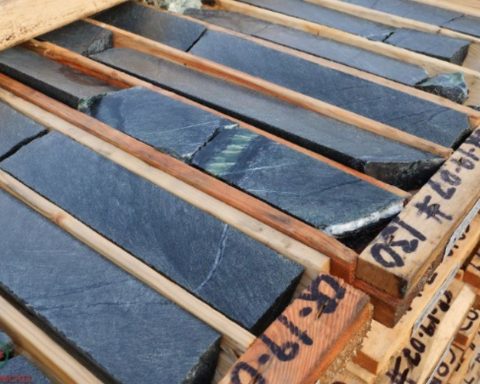“Coal is dead,” Jim Barry, the global head of BlackRock‘s infrastructure investment group, said in a recent interview with the Australian Financial Review (AFR).
“Anyone who’s looking to take beyond a 10-year view on coal is gambling very significantly,” Barry told the AFR for an article that is notable not just for what it says but for where it appears.
The review is the financial paper of record in Australia, which is an exceptionally natural-resource driven economy and far and away the biggest coal-export nation in the world.
While ideologues may disagree – or may say they disagree with financiers like Barry – it’s always wise to watch the money. Barry’s stark assessment, coming as it does from the world’s largest investment group (BlackRock has $5 trillion in assets under management) is reverberating among investors globally.
The old mentality around renewable energy – that it was expensive and “all about subsidies”– has been “turned on its head,” Barry said, as prices, particularly for solar energy, have fallen.
“The thing that has changed fundamentally the whole picture is that renewables have gotten so cheap.”
This is a wake-up call for Asia, where some governments and investors continue to hold to the outdated belief that fossil fuels are the best route to cheap and secure power.
BlackRock’s take is one of the latest and most important challenges to skeptics who continue to question the facts around an electricity-generation transition that is gaining steam. Implicit in Barry’s remarks is not just the growing global appetite for clean energy investments but the increasingly viable possibility that emerging economies have a chance now to leapfrog fossil-fuel generation by taking up renewables, cutting costs and developing their economies in ways that are friendly to the environment and public health.
Singapore’s sovereign wealth fund, GIC Private Limited, and its state-owned investment company, Temasek, are good examples of big money pools that will take note of BlackRock’s proclamation. Both GIC and Temasek have stakes in the energy and natural resources sectors. GIC has already made forays into renewable energy as part of its private equity investment, notably a 63 per cent stake in Greenko Energy, the clean-power developer in India that has ambitions to double its generation capacity to about 5 gigawatts over the next two years.
Global investment in the renewable energy industry has soared to more than $300 billion annually, from $20 billion just over a decade ago. Investment markets in renewable energy infrastructure are growing rapidly, and are providing reliable returns.
Two years ago, investment in renewables was double those made in fossil fuel generation capacity, demonstrating how private finance has picked its winner. Many banks – ING, Crédit Agricole and Deutsche Bank – have gone further, publicly announcing that they will no longer fund greenfield thermal coal-mining projects or new coal-fired power plants.
Such investors are clearly embracing the future, well aware now that well-managed infrastructure investments bring returns of 12 to 15 per cent annually and that renewable energy is emerging as the most transacted of all sub-sectors in this asset class, accounting for about 42 per cent of all activity
A growing proportion of sovereign wealth funds, especially, are investing in infrastructure, and participation there has increased from 57 per cent in 2014 to 62 per cent in 2016.
The renewables sector is no longer the experimental space it was, having entered a long-term growth cycle with a strong outlook driven by low costs, competitive prices, policy advances and rapid uptake.
Overall, $11.4 trillion is expected to be invested in new power generating capacity over the next 25 years – that’s an average of $454 billion a year. More than two-thirds of this will be in renewable energy, led by solar and followed by onshore wind. Emerging economies will account for more than two-thirds of the capacity expansion of renewables.
The fossil fuel sector has contributed enormously to global growth for over a century, with oil and gas at the forefront of economic expansion. For most of the past 40 years, these industries have produced consistent revenues and offered solid value.
But times have changed, and the smart money knows it.
Yulanda Chung is a Singapore-based IEEFA energy finance consultant. This article first appeared on the IEEFA website.







